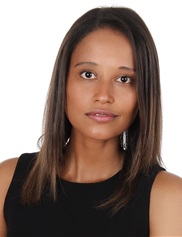Grants Funded
Grant applicants for the 2024 cycle requested a total of nearly $3 million dollars. The PSF Study Section Subcommittees of Basic & Translational Research and Clinical Research evaluated more than 100 grant applications on the following topics:

The PSF awarded research grants totaling over $650,000 dollars to support more than 20 plastic surgery research proposals.
ASPS/PSF leadership is committed to continuing to provide high levels of investigator-initiated research support to ensure that plastic surgeons have the needed research resources to be pioneers and innovators in advancing the practice of medicine.
Research Abstracts
Search The PSF database to have easy access to full-text grant abstracts from past PSF-funded research projects 2003 to present. All abstracts are the work of the Principal Investigators and were retrieved from their PSF grant applications. Several different filters may be applied to locate abstracts specific to a particular focus area or PSF funding mechanism.
A novel three dimensional model for bone tissue engineering
Caroline Szpalski MD, PhD, FACS
2010
New York University School of Medicine
Pilot Research Grant
Tissue Engineering, General Reconstructive
In the last few years, the focus in tissue engineering has become more complex. Instead of growing a single cell source on a uniform scaffold, one is now trying to mimic the natural tissue as close as possible by using the several cell types that make up a tissue and scaffolds with specific regions for specific organizations of the tissue. However, one of the major limitations of tissue engineering is still the inability to provide sufficient blood supply in the initial phase after implantation. Our studies of two-dimensional co-culture demonstrate, that out of ten different cell combinations, bone formation to be greatest when a more mature vasculogenic cell is grown with a less mature osteogenic cell, ie human umbilical veins endothelial cells (HUVECs) and osteoprogenitor cells (OPCs). Based on our previous experiments, the goal of the current study is to create an in vitro endothelial network in a bone tissue engineering construct by seeding HUVECs and OPCs on HA-TCP scaffolds, which has never been tried before (Aim1). We will compare the osteogenic markers (alkaline phosphatase, osteocalcin), angiogenic markers (CD 31, VEGF 165, Vegfr1), histology, uCT imaging and immunohistology of our novel model to HA-TCP scaffolds seeded with HUVECs or OPCs as a comparative control. In Aim 2, we will then investigate optimum cell seeding ratios and investigate the effect of time delay co-culture on vessel like structures formation and bone nodule formation (Aim3). In Aim 4, we will investigate the effect of addition of VEGF and PDGF BB to the culture's media.
 Caroline Szpalski earned her medical degree Magna Cum Laude at the Free University of Brussels (Universite Libre de Bruxelles, ULB) and is currently a 1st year Orthopedic Surgery Resident (Combined 1st year program with Plastic Surgery) at the ULB Hospitals in Brussels. Under her MD/PhD program, Caroline has the opportunity to spend two years in the Institute of Reconstructive and Plastic Surgery (NYU) as a Post Doctoral Research Fellow. Of note, she recently won a Belgian American Exchange Foundation Fellowship Grant (B.A.E.F Post Doctoral Fellowship Grant). Her research interests include bone tissue engineering, impaired wound healing and skin stem cells.
Caroline Szpalski earned her medical degree Magna Cum Laude at the Free University of Brussels (Universite Libre de Bruxelles, ULB) and is currently a 1st year Orthopedic Surgery Resident (Combined 1st year program with Plastic Surgery) at the ULB Hospitals in Brussels. Under her MD/PhD program, Caroline has the opportunity to spend two years in the Institute of Reconstructive and Plastic Surgery (NYU) as a Post Doctoral Research Fellow. Of note, she recently won a Belgian American Exchange Foundation Fellowship Grant (B.A.E.F Post Doctoral Fellowship Grant). Her research interests include bone tissue engineering, impaired wound healing and skin stem cells.